Whether you're Irish, living away and planning your wedding in Ireland from abroad or you're a couple figuring out how to plan a destination wedding in Ireland, organising the legalities and logistics from abroad can be tricky. We've put together a handy guide to help you find the best suppliers, troubleshoot any snags, and answer all your frequently asked questions. Read on for our top tips for planning an Irish wedding.

Whether you're coming home for your big day, or you've dreamed of eloping in the Emerald Isle, the rules of planning a destination wedding apply - though there are some Ireland-specific things to remember too!
From the initial planning and paperwork (don't stumble on the legal bit!) through to managing your suppliers from thousands of miles away, to getting the dress here in one, uncrumpled, piece, these nuggets of advice will help take some of the stress of planning your destination wedding in Ireland away.

Initial Planning for a Destination Wedding in Ireland
1. Remember Bank Holidays & Peak Travel Times
Before you book anything, have a look at the calendar and consider the bank holidays, special dates in Ireland, and where you're based, before deciding on preferred dates. The August and June Bank Holidays, St Patrick's Day, Christmas time, etc. can be super busy in Ireland and expensive for flights and accommodation.
2. Organise the Legalities As Soon As Possible
It is possible to apply for your marriage license by post, but advisable to do so months in advance. The paperwork must be lodged a minimum of three months before the chosen date and you must appear in person and meet the registrar at least five days before the wedding. If one of you is not Irish, you may have to apply for an apostille to be issued on the birth certificate of the non-Irish partner, and provide a Certificate of Freedom to marry (also known as 'Civil Letters of Freedom', 'Certificates De Coutume' or 'Certificates of Nulla Osta') issued by a relevant authority in your country. This can take up to six weeks.
Check out our post about the legalities in Ireland and double check on the latest requirements with the HSE to be sure, to be sure. For information on getting married in Northern Ireland, NI Direct's Guidance.
Oh and in case you aren't aware, same sex marriage is now legal in Ireland and Northern Ireland.
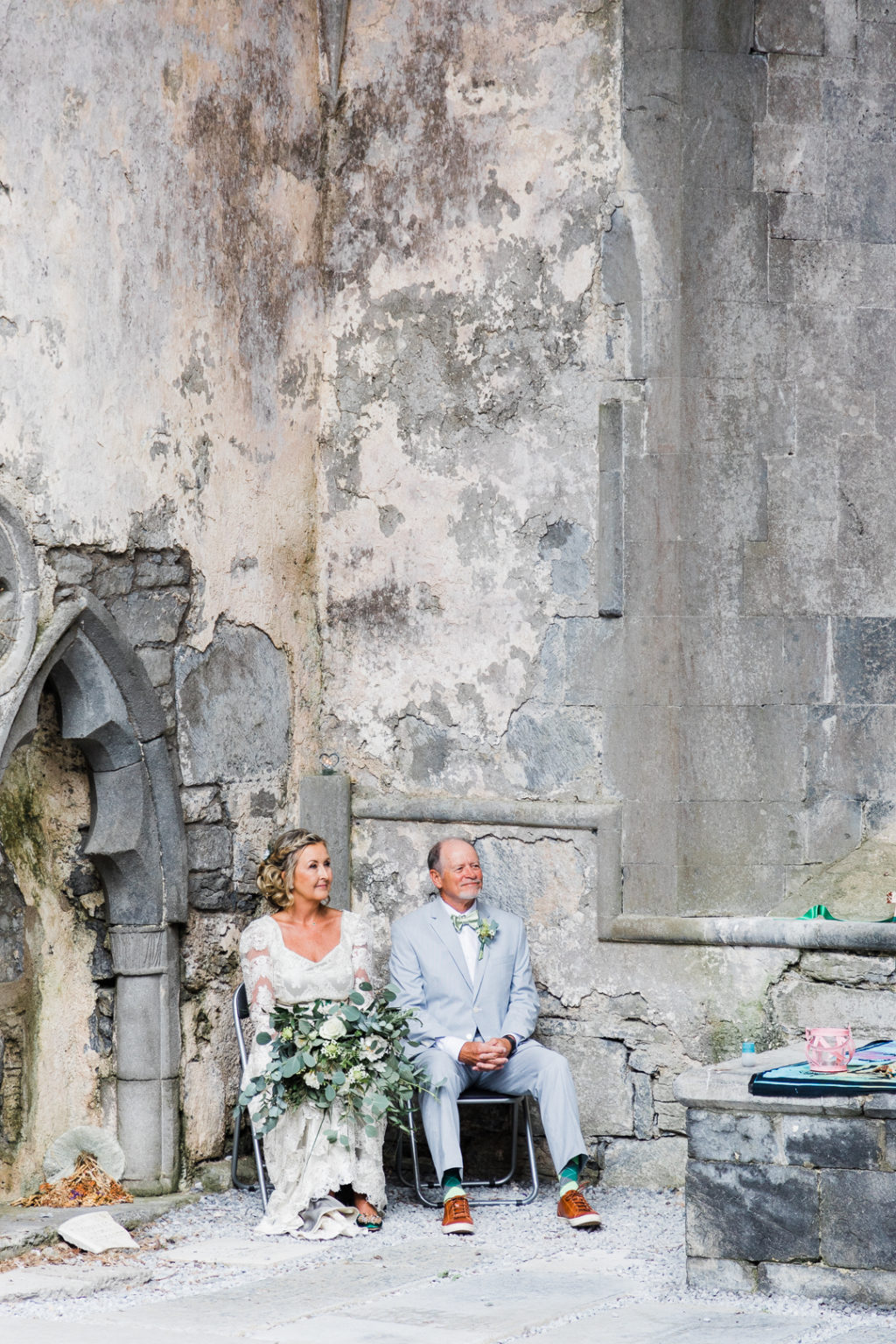
3. Check on Religious Ceremony Requirements
To have a Catholic wedding in Ireland, the couple must have completed the required pre-marriage course and to prove their eligibility to marry in the Catholic church. Each religion is different, so be sure to check up what the exact requirements from your church are. Also be aware that not every Catholic priest in Ireland will marry you or allow you to have your ceremony in their church. If you're not local to the area, you'll need to check with them what their personal policy is and that of the bishop and diocese also.
4. Watch Your Budget (And the Currency Exchange)
One of the trickiest parts of planning a wedding from abroad is managing the money. It's harder than the usual wedding budget planning for two reasons: firstly, you'll have to manage in two different currencies, making sure to account for currency fluctuations, of course. Secondly, you'll have to transfer money across international borders. This can be a pain, particularly because of the extra fees involved.
5. Get a Skype Account
Another additional expense to avoid is long-distance phone calls, of which there'll be many! Calling on Facebook messenger, WhatsApp, Facetime and Google Hangouts is possible of course, but most businesses will prefer to arrange calls on Skype rather than getting random messages (see below) on their personal accounts. Most use Skype for this purpose.
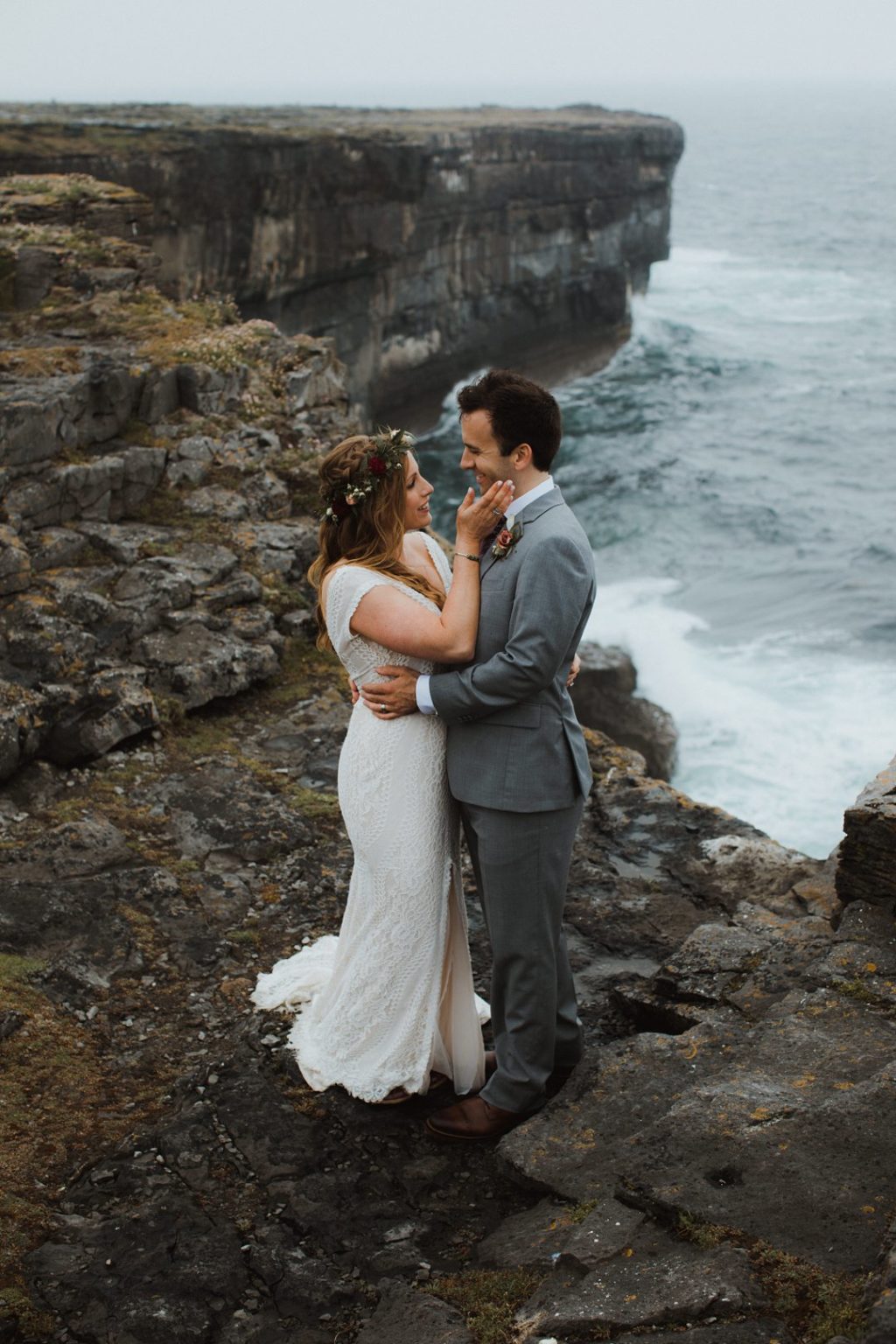
Managing Suppliers for a Destination Wedding in Ireland
6. Remember the Time Difference
For couples based in Australia, Canada or the US, the time difference is probably the single most annoying part of planning a wedding in Ireland from abroad. Unfortunately, there's nothing to be done about this - you've just got to be patient. You'll be waiting hours for a response but avoid the temptation to text or call in the middle of the night Irish time.
7. Wedding Businesses Work at the Weekends
Another source of frustration is response time. It's worth remembering that wedding suppliers are often out of office working at weddings on Fridays and Saturdays, and that Sunday is generally a day off. So while you have more time to think about your wedding at the weekend, this is when your suppliers are least likely to be available. If you're looking for a quick turnaround, Monday to Thursday are the best times to arrange calls, send emails and generally liaise with your suppliers.
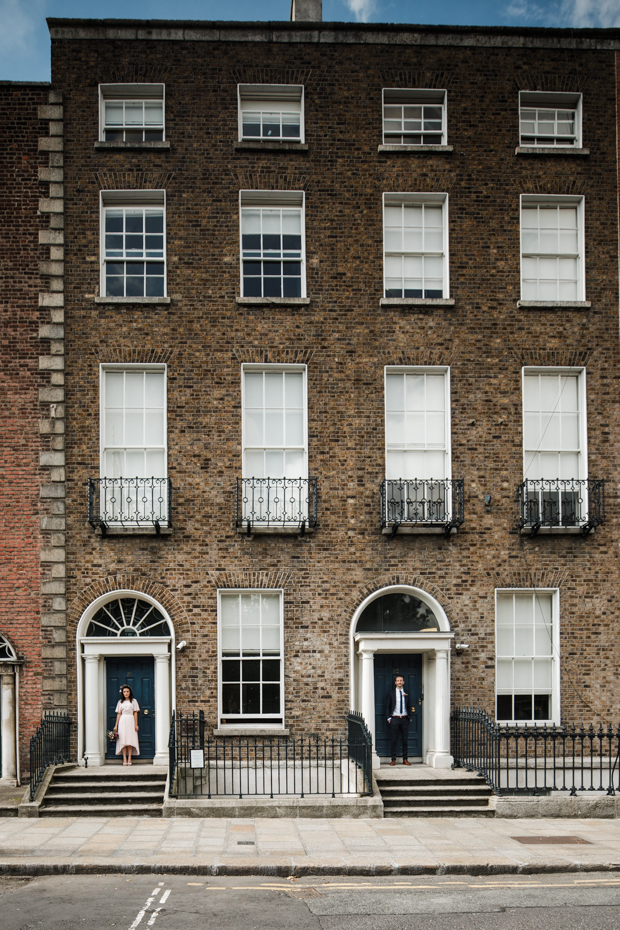
8. If in Doubt, Hire a Planner
If you know the area where you're getting married well, have a great venue coordinator, AND have helpers on the ground, feel free to skip on to the next step. For everyone else, we have a big piece of advice, hire a wedding planner. This goes for couples coming to Ireland for the first time, or anyone planning a marquee wedding or a wedding at home. A planner will have local knowledge, contacts and experience, and will be able to look after as many of the details and logistics as you want. Planning a wedding can be a mammoth task at the best of times, so if you're located out of the country, a planner will help you save time, money and stress in the long run.
9. Get the Look, Save the Stress, Hire a Stylist
If a planner is not for you, but you have a certain vision and expectation for the style of your wedding, hire a stylist. Sourcing items to hire, finding the right suppliers who can deliver the look you're going for, and coordinating the set-up is difficult enough when you're based in the same country. If you're based abroad, having a stylist will be far less stressful and make the wedding planning experience much more enjoyable. Once you've found your stylist, you should explain your vision clearly and trust them to put together a gorgeous day!
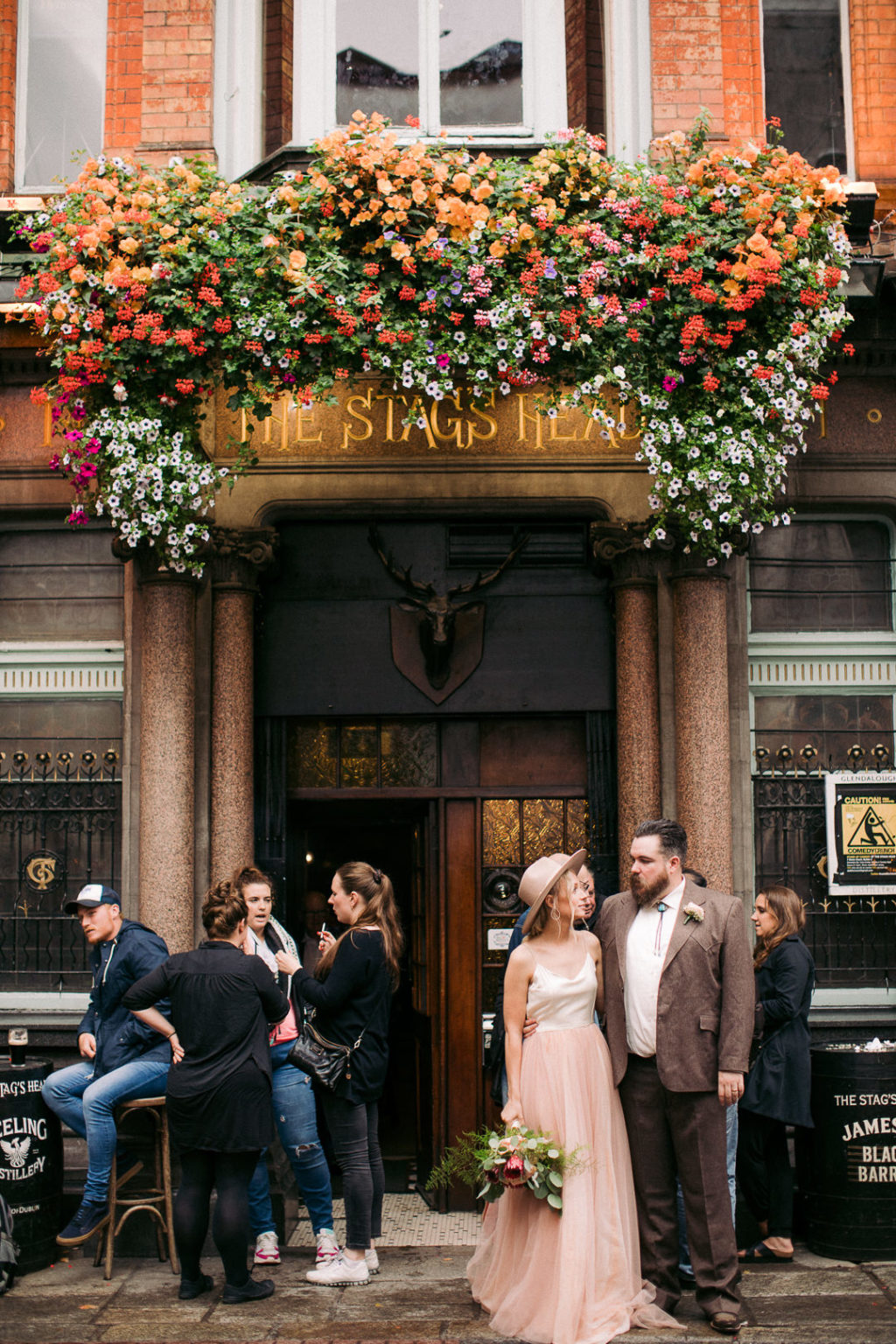
Delegating Tasks If You're Living Abroad
10. Venue Visits
When you're living in another country, it can be really hard to commit to a wedding venue without having seen it. Something we hear from all sides is how stressful it can be when you ask your parents to view venues for you, and they don't like your potential choices. Mum and Dad might be looking at barn venues and wondering, "What the hell are these guys thinking?". If they don't understand the style of wedding you're planning, it will be almost impossible for them to judge wedding venues objectively. In our opinion, you're better off asking someone whose taste you trust, who understands what you're looking for, and whose honest opinion you can be confident in.

11. Trust Your Suppliers
Before you hire anyone for your wedding, a good deal of background research is advisable. Figure out what kind of weddings have they done before, where have they worked, whether you like their style, and whether you like the real weddings they've been featured in. Picking suppliers whose work you love should make the relationship much easier, because you're going to have to trust them to deliver your vision without having face-to-face conversations. Our supplier directory is a great place to start your search.
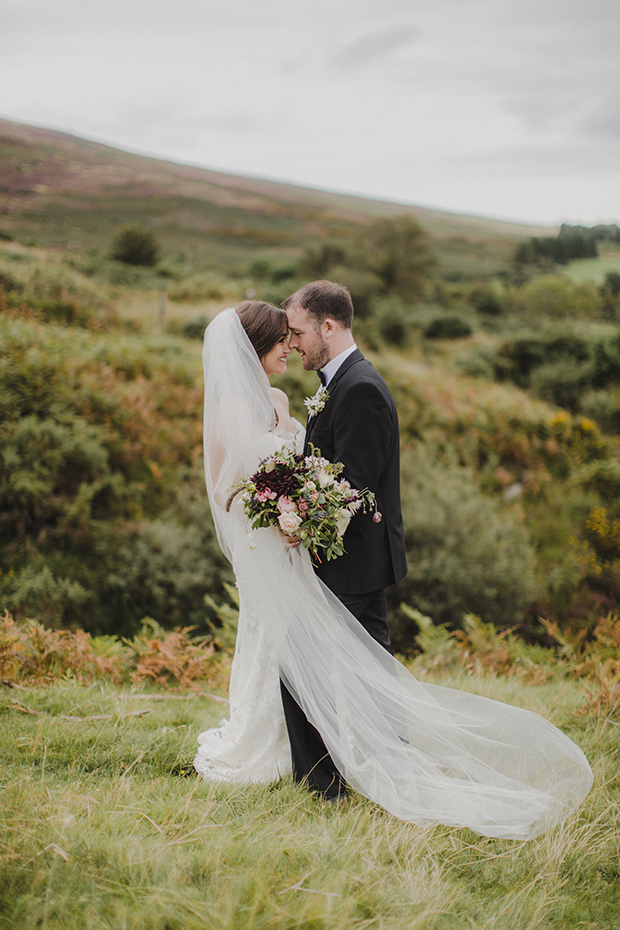
Travelling To Ireland for your Wedding
12. Arrive at Least One Week Before the Wedding
Between jet lag, wedding nerves and last minute arrangements, you will need some breathing time in Ireland to adjust to everything and get your game on. Our advice is to arrive at least one week before the wedding, and allow yourself at least three to five days afterwards to come down from the high. Weddings are high-octane events, you'll be buzzing on adrenaline, so a little decompression time afterwards with family and friends will be wonderful. As your family probably won't have been with you for the build-up if you live abroad, it's also nice to have something to do together in the days before the wedding, so they feel part of the celebrations, whether that's folding ceremony booklets or putting together favours.
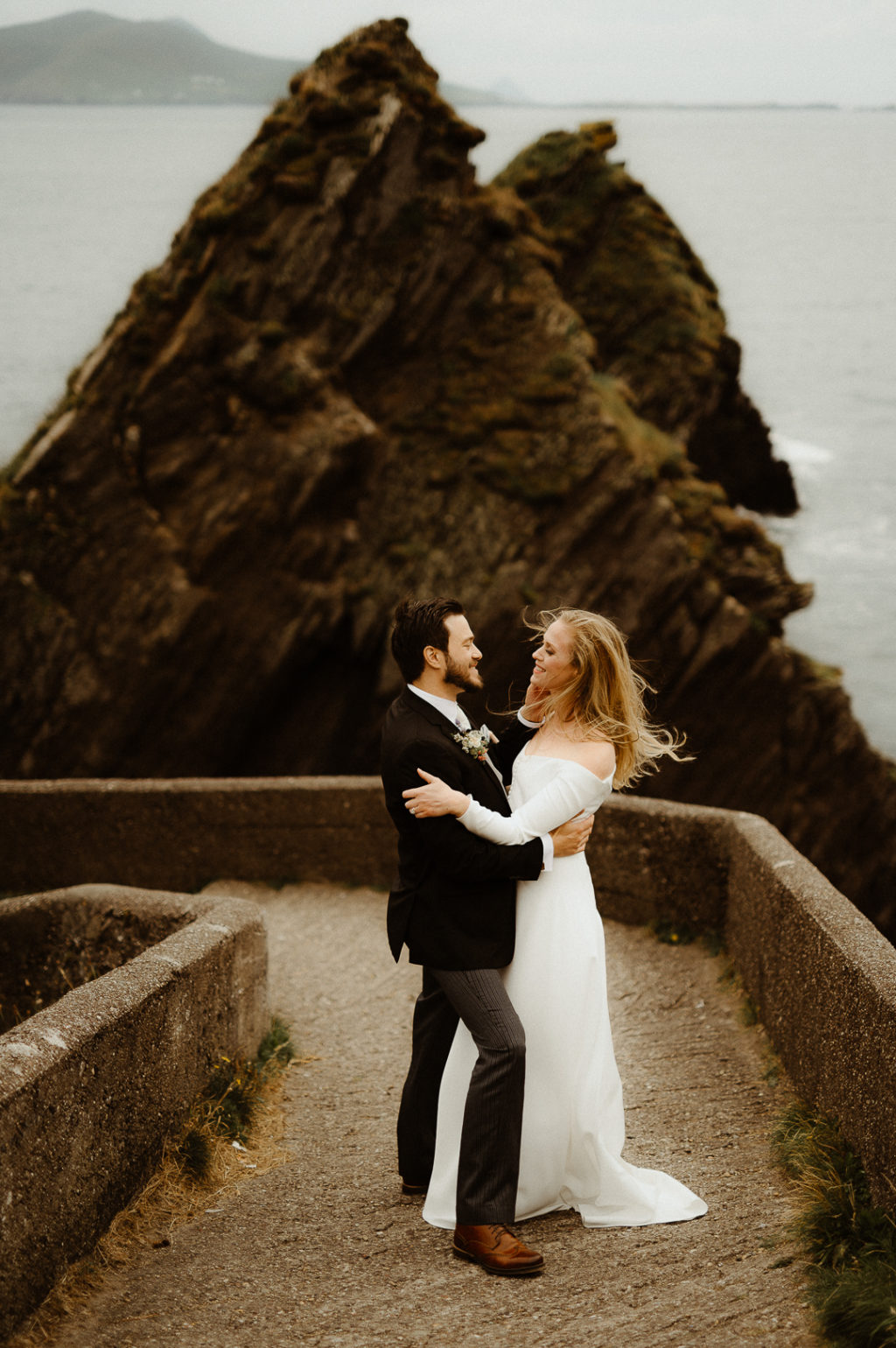
13. Don't Go Overboard with Luggage
You might be tempted to purchase everything you need for your wedding in your place of residence and lug it to Ireland in an enormous bag, Mary Poppins-style. Beware of the hassle of bringing loads of luggage. If you're sourcing decor pieces yourself, try to purchase them online from Irish companies and get them delivered ahead of you. If you're Irish, you'll be able to get them delivered to family members' homes. If not, talk to your planner about hiring decor or potentially taking deliveries. Delegating some of that shopping to a good friend can save you a lot of time and heartache. Of course, there's one very important exception...

14. Get your Dress Locally
If you're living abroad, it makes way more sense to buy your dress locally in order to have your fittings on time, and make sure that everything is exactly as you want it to be. When asked by your boutique for your wedding date, make sure to give them your date of travel instead, as this is the real deadline for when your dress needs to be ready!
15. ...But Be Careful with Transport
If you're flying long distance, ask the air steward to hang your wedding dress in first class (pretty please!) If you're flying short distance, book it a seat of its own. You need to keep it flat or hanging to avoid creasing and crushing. If required, arrange to have your outfits steamed when you land.

One Last Tip: Keep a Cool Head!
We really hope this post has been helpful! We've just got one last piece of advice to share, which is to remain calm! There are bound to be stressful moments in planning a wedding abroad, but believe us when we say that they'll pass! As long as you're organised, you can trust that everything will work out for the best.
Feature image: Mrs. Redhead via One Fab Day
Looking to be inspired? You'll find lots of gorgeous ideas in our Irish real weddings!
Listen & Subscribe to The One Fab Day Wedding Podcast






